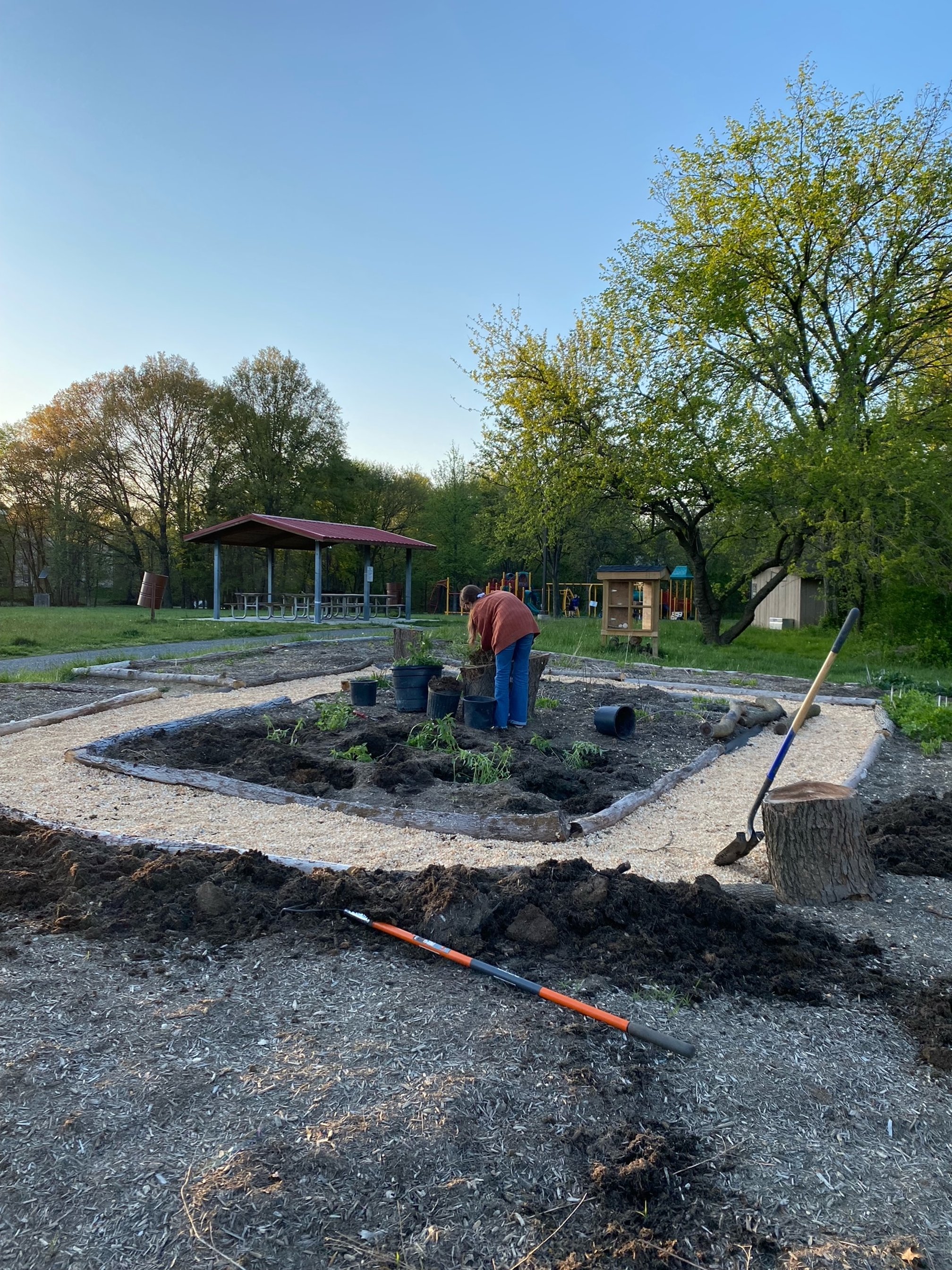
Healthy Native Habitats
Laurel for the Patuxent’s Healthy Habitats Action Group promotes the planting of native vegetation to help conserve biodiversity, reduce harmful stormwater runoff and pesticide use, and beautify neighborhoods naturally. We collaborate with the USGS Bee Lab and the Patuxent Wildlife Research Refuge in Laurel to grow and plant native vegetation, especially pollinator friendly plants, on public and private properties. We are part of the Homegrown National Parks movement – a global campaign to regenerate biodiversity by converting lifeless lawns to thriving habitats. We are creating healthier communities and combating the extinction crisis while fostering a sustainability mindset.
The Habitat Group has been creating a community pollinator garden at the Roland B Sweitzer city park in Laurel. Starting in spring 2021, City Parks and Rec staff removed several stumps from the project site. Volunteers then laid down a layer of cardboard and covered it with deep mulch to smother the grass and weeds. Three months later, we transplanted native flowering plants from donor properties. A gravel path, sitting stumps, and a large insect hotel were added in winter. Currently, more vegetation is being planted and soon we’ll install education signage and a Chronolog to photo document growth and flowering patterns across seasons. We plan to create more gardens in public green spaces and to apply for Bee City USA certification from Xerces Society and register as a Monarch Waystation.
Helping people create native gardens and meadows is an L4P priority. Generally the term garden implies aesthetic design whereas meadow is used to describe a more natural look. Either is preferable to a traditional or “corporate” lawn, which is typically a monoculture of non-native turf grass requiring large amounts of water, harmful pesticide applications and maintenance. Such lawns have been referred to as biological deserts. This aesthetic persists largely because it is ingrained - it’s simply what we grew up with. L4P joins hundreds of organizations and communities across the country and our world in a rapidly expanding movement to adopt a more ecologically enlightened value system and aesthetic that respects and supports all life, including humans, colorfully. Imagine a future where homogeneous carpets of turf grass are transformed into a brilliant palate of colors and forms that help thousands of species avoid extinction. It also requires a lot less labor to maintain, so you can spend more time doing fun and interesting things instead of mowing the lawn. Learn More from UMD extension.
Reach out to Laurel for the Patuxent for advice and resources for free or low cost conversion. We have applied for grants to cover all costs of installing gardens and meadows and converting yards in 2023 for a limited number of residents. RSVP now!
The Roland B Sweitzer Park Community Pollinator Garden and eco-friendly yards campaign are supported in part by donations and grants from the Chesapeake Bay Trust Community Engagement and Restoration program and from the office of Tom Dernoga, Prince George’s County Council, Maryland. We are grateful to our many volunteers, for donations of compost from We Care Denali, water access for Sweitzer garden from March Life Tribute Center, and lumber from Zimmerman’s Ace Hardware for construction of tables at our native plant nursery.
